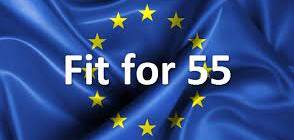
This news was produced by and first published on the IEEP – Institute for European Environmental Policy website.
It has already been more than seven months since the European Commission launched Fit for 55, which defines its long-term climate and energy policies. This period was marked by an excessive polarization of the political debate in Europe on future energy prices. Yet Russia's war on Ukraine highlights the price of political inaction.
Europe's foreign and security policy choices vis-à-vis Russia are limited by its energy dependence. And Russia is not the only autocratic regime on which the European Union depends for essential supplies. It is high time for the EU to start establishing its green strategic autonomy as the foundation for peace and security on the continent.
The latest delays are nothing new. Europe currently faces a serious security threat after decades of failure to fundamentally reform its energy sector and heavy industries, or significantly reduce its dependence on foreign energy. In fact, Europe's energy dependency – or its reliance on imports to meet its energy needs – has increased by 5 percentage points since 2000, reaching 61% in 2019. EU Member States ranges from over 90% in Malta, Luxembourg and Cyprus to 5% in Estonia.
This dependence is compounded by the concentration of supplies from just a few countries, many of which are authoritarian or highly unstable. In 2019, three authoritarian countries accounted for 42% of EU crude oil imports (27% from Russia, 8% from Saudi Arabia and 7% from Kazakhstan), while Russia accounted for almost half of its imports of solid fuels (mainly coal).
European governments are right to be concerned about the severity of the sanctions imposed on Russia by European households, which have already been reeling from a huge increase in energy prices in recent months. While current estimates suggest that EU fossil gas reserves are sufficient to get households through the next few months without major disruptions, the big challenge is to prepare for next winter without Russian supplies of coal, gas and oil.
Today almost 50% of all buildings in the EU are equipped with boilers. Fifty-eight percent of these boilers are gas fired . One in three households on the continent uses gas burners . Therefore, in the short term, the priority for the EU should be to urgently reduce this dependence of households on all fossil gas, not just that of Russia. European governments will seek other sources of fossil gas – be it Azerbaijan, Turkey or Qatar – but this will only be a temporary measure that perpetuates the EU's energy dependence. More broadly, the EU will also need to reconsider the role of gas as a transition fuel in its energy decarbonisation scenarios up to 2050, which will have major implications for industry.
The EU should focus on demand, accelerating the electrification of European domestic heating systems and building renovations such as insulation. The Fit for 55 package already provides the tools to do this – it is up to EU leaders to use them now rather than wait until 2025.
The EU should also address the potential economic scarcity of many materials and resources (minerals, rare earths, sand, wood, etc.) on which our economy depends. Such scarcity is often linked to wars around the world – and, due to growing demand, could become the main driver of conflict in the decades to come. Globally, the extraction and use of raw materials is expected to increase from 79 gigatons today to 167 gigatons in 2060.
The EU relies on external sources for most of its industrial and daily consumption of food, gasoline and electronics. For example, the EU depends on imports of most mineral fertilizers used in food production, which could be disrupted by conflict. Fifty percent of EU nitrogen fertilizer imports come from Russia. The EU imports most of its phosphate and potassium fertilizers from Russia, Belarus and Morocco . And the Union is also dependent on imports – especially those from China – for many of the raw materials needed for its defense sector.
To start addressing these vulnerabilities, EU leaders should use economic recovery plans, cohesion policy and the Fit for 55 package to reduce household reliance on fossil gas for cooking and heating. This effectively means that the Union needs an ambitious strategy to replace all gas boilers and stoves in the EU over the next two years with renewable gas boilers, such as solar thermal or hybrid heat pumps efficient. In line with this effort, the EU should also:
Immediately launch a communication campaign targeting EU citizens and businesses to reduce their energy consumption in solidarity with Ukraine.
Develop a common energy security policy based on the concept of green strategic autonomy. All sources of energy and critical raw materials in the EU should be sustainable and compatible with its strategic autonomy. This policy should include a mandatory target to reduce the Union's dependence on foreign sources of energy and materials, as well as ambitious energy efficiency measures.
- Engage in constructive dialogue with key trading partners on collaborative approaches to sharing global supplies of critical materials
- Accelerate the implementation of the Circular Economy Action Plan to reduce the demand for and waste of these materials.
- Reduce the risk of resource-based conflicts by preventing shocks to supplies of food and materials essential for housing, mobility and the energy sector. This will require common funds to promote the development of efficient technologies in the use of materials and energy.
- To ensure that EU food production reduces its dependence on inputs from unstable countries and becomes more resilient to economic shocks and climate change. To do this, the EU will have to take into account the environmental and climatic effects of the common agricultural policy.
Given current events, the EU should not further delay its efforts to resolve all these issues. It is time to strengthen the EU's green strategic autonomy in energy and critical raw materials.
Posted on 2022-03-08 16:45








Comments